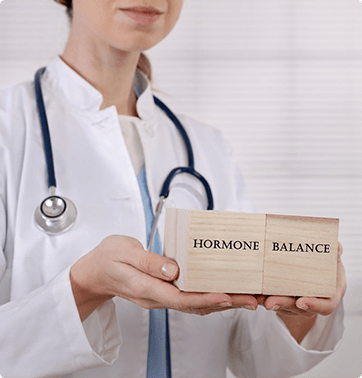Menopause Management
There is no need to suffer through the trials and tribulations of menopause. Find out how you can obtain relief from the hot flashes, fatigue, and negative impact on your sex life that can come with menopause.
Symptomatic relief may be as easy as a visit to Great City Medical in NYC. Schedule your appointment with gynecologist, Dr. Yelena Tsyba, today!

Menopause Specialist
Clients in New York
cosmetic procedures
Menopause
If you’re experiencing any of the following signs and symptoms of menopause, you may be a candidate for hormone replacement therapy:
- Hot flashes
- Insomnia
- Night sweats
- Vaginal dryness
- Vaginal pain
- Painful sex
- Anxiety
- Depression
- Mood swings
- Low sex drive
- Weight gain
- Fatigue

Perfect
Feel Younger

cosmetic procedures
Menopause Specialist in New York City
There is no need to suffer through the trials and tribulations of menopause. Hot flashes, sleepless nights, weight gain, and irritability are commonly experienced by women approaching midlife, and these disruptive symptoms can last for years.
Isn’t it time you did something about it? Symptomatic relief may be as easy as a visit with gynecologist Dr. Yelena Tsyba at Great City Medical in NYC.
A woman is considered to have begun menopause when she hasn’t had a period for 12 months. Menopause reflects the natural decline in production of estrogen and progesterone hormones in the body. The resulting hormonal imbalance can wreak havoc in your life.
Frequently Asked Questions
Menopause Management FAQ
Depending on the severity of your symptoms, Dr. Tsyba may determine that you would benefit from antidepressants or other medications as well.
HRT involves providing a form of the hormones your body is no longer producing in order to balance bodily processes. In addition to alleviating menopausal symptoms, recent research has found that beginning HRT at the time menopause begins may provide additional health benefits such as protection against heart disease, stroke, breast cancer, and even dementia in later years.
Bleeding that occurs after menopause has begun may indicate a number of health issues.
Menopause can cause the tissue lining the uterus or vagina to thin, tear, and bleed – especially after sex. When the opposite problem occurs and the uterine lining thickens (which is called endometrial hyperplasia), it can also cause postmenopausal bleeding.
Uterine fibroids and polyps are another cause of postmenopausal bleeding. These growths develop in the tissue lining the uterus and are typically benign, although some polyps may develop into cancer.
Dr. Tsyba utilizes a number of safe, convenient in-office gynecological procedures that can address these issues.
Menopause can affect a woman’s bladder, too.
Because estrogen helps to keep your pelvic and bladder tissue strong and flexible, the sudden drop in estrogen levels that can occur with menopause weakens these areas, resulting in more frequent urges to urinate (overactive bladder) and urinary incontinence. Hormonal imbalances may also increase your risk of urinary tract infections.
Pelvic floor strengthening (also called Kegel exercises), medications, and nerve stimulation may help address these issues.
what people say about us